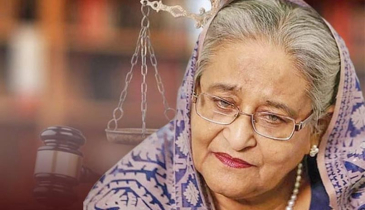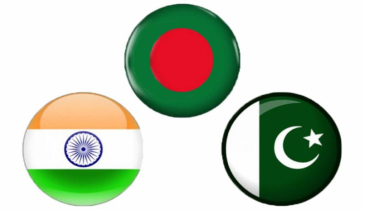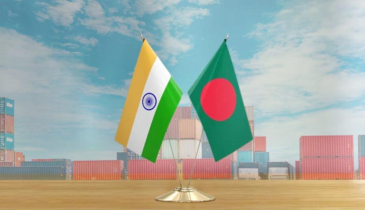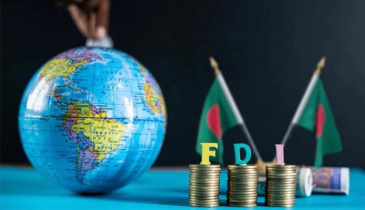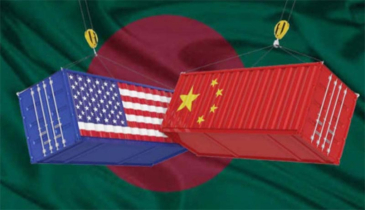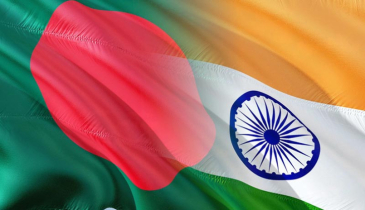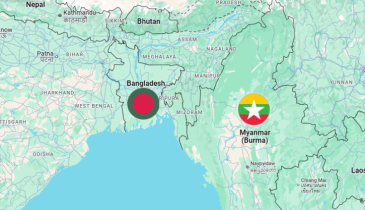Bangladesh should target trade expansion through D-8
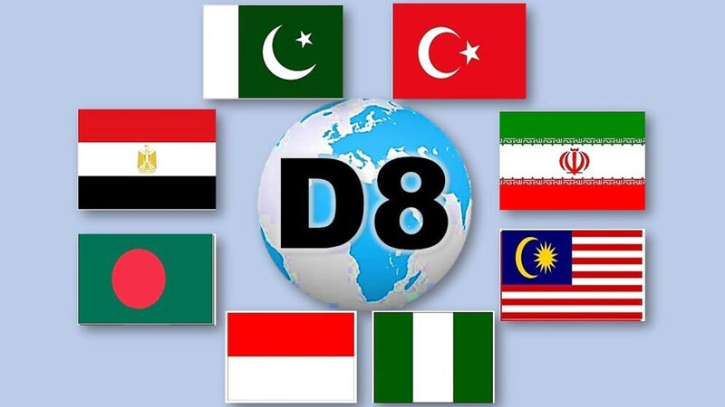
Egypt will host this year's D-8 (Developing-8) Organisation for Economic Cooperation Summit, bringing together leaders from member states, namely Bangladesh, Egypt, Indonesia, Iran, Malaysia, Nigeria, Pakistan, and Turkey, targeting talks on boosting trade, investment, exports, and economic collaboration among members.
Bangladesh is poised to enhance its trade and business opportunities with other fellow member countries. Egypt has sent a formal invitation to Chief Adviser Dr Muhammad Yunus to attend the summit scheduled on 19 December 2024.
Strengthening economic ties and collaboration within the bloc will provide Bangladesh with overwhelming opportunities in the near future as part of its efforts to diversify its trade arrangements and reduce dependency on certain export materials.
Strategic move to strengthen trade relations
The D-8 countries have an overwhelming prospect, as the collective market of the bloc accounts for 1.1 billion people (one-seventh of the world's population) and 14% of global trade ($700 billion).
Established in 1997 by the then Turkish Prime Minister Necmettin Erbakan to achieve economic and political unity among Muslim countries, D-8 aims at fostering economic cooperation among member states' positions in the global economy, diversifying and creating new opportunities in trade relations and ensuring their strong participation in decision-making mechanisms at the international level.
With a market of over 1 billion people and a combined GDP of approximately $5 trillion, it is an attractive space for Bangladesh's expanding export base. The traditional market of Bangladeshi exports is dominated by a high concentration of ready-made garments, mainly to the US and EU.
However, long since economic diversification has become a priority for Bangladesh, despite aspirations, a lack of effective market research has barred progress in exploring it. Unlike regional trade agreements, D-8 operates within a global framework, providing Bangladesh with opportunities to explore new export destinations and expand its traditional strongholds.
With the country's growing potential in textiles, garments, agricultural products, pharmaceuticals, and leather exports, engagement with D-8 nations offers new channels for economic reshuffling and market diversification. This opportunity emerges at a time when the countries' reconstruction is ardent and global supply chains are being redirected to look forward to new trade alliances to reduce overreliance on specific countries.
The purpose and objectives of D-8 synchronise the economic goals of Bangladesh, offering significant potential for elevating its economy on the world stage. Over the years, the organisation has focused on improving trade and investment, aiming at its goals of fostering economic cooperation and development among member states.
Targeted sectors for enhanced trade
As per D-8's economic opportunity, Bangladesh will work with all the member states to unlock its potential from sectors like agro-processing to ICT. The country is going to benefit if its major agricultural commodities, including rice, jute, tea, shrimp, leather, mangoes, and other food products, find greater market opportunities through intra-D-8 trade.
On top of that, the country's thriving pharmaceutical industry can easily locate its market in countries like Nigeria, Pakistan, and Egypt, which are investing heavily in healthcare and medicine. Besides, the growing ICT sector can easily position itself to collaborate with the markets of its counterparts.
Moreover, Bangladesh has a lot to import from states like Turkey and Iran, particularly in the defence sector, with opportunities to share technologies for building greater resilience to the country's national security.
Bangladesh maintains the highest trade volume with Indonesia in the D-8 bloc, surpassing $6 billion of trade every year, importing mostly palm oil, coal briquettes, refined petroleum, and cement, as well as exporting ready-made garments and agricultural goods.
The recent trade developments with Pakistan could be a significant event to strengthen ties in the D-8 meeting, as introducing a direct shipping line between Pakistan and Bangladesh for the first time has reduced transit time. Turkey, with a lot of trade potential for Bangladesh, can be a major destination for Bangladeshi exports.
Bangladesh can act as a gateway for Turkey's Asia New Initiative in the ASEAN countries; in return, Turkey can act as a gateway for Bangladeshi exports to European countries. Malaysia is one of the largest sources of foreign direct investment (FDI) in Bangladesh. The country is important as it is a key destination for Bangladeshi migrant workers and a source of remittances, and the two countries have trade agreements in place that encourage further business between them.
While the trade volumes with Pakistan, Iran, Egypt, and Nigeria are typically lower, enhanced cooperation and collaboration within the bloc can be significant, as it is a bloc representing a population of over 1.1 billion, which offers massive potential for economic growth and development.
Perhaps an important breakthrough for the platform would be materialising a currency swap deal. Amid the ongoing economic volatility, D-8 has been mulling the idea of a currency swap deal for the last few years between the member states to create a more viable trade framework. For Bangladesh, such an initiative is highly desirable, especially in the context of a depleting foreign exchange reserve.
Bangladesh's leadership role in D-8
Bangladesh's current leadership role as the chair of the D-8 provides it with an opportunity to shape the organisation's future direction. Since its chairmanship of the organisation, the country has brought attention to certain aspects, including trade facilitation, infrastructure development, and market access. Member states also commended Bangladesh during its Dhaka Declaration in 2021 for realising the theme of the summit to address mutual interests.
In the upcoming summit, Bangladesh can continue advocating initiatives that benefit not only its economy, but also the mutual development of the member states that obtain the bloc's objectives.
By leveraging the organisation's political and economic strength, the member states may attain the goals of the organisation, including strong participation in decision-making mechanisms at the international level. Particularly, the crisis in Gaza has left the world dumbfounded, while the inability of the Muslim world to solve the issue is evident despite their traditional political and economic arrangement.
Here, in particular, Bangladesh has a lot to intervene with in this global economic arrangement as the country's brilliant freedom-loving population is a key factor in bringing change both in the global marketplace and in world politics. -Source: The Business Standard
.png)


